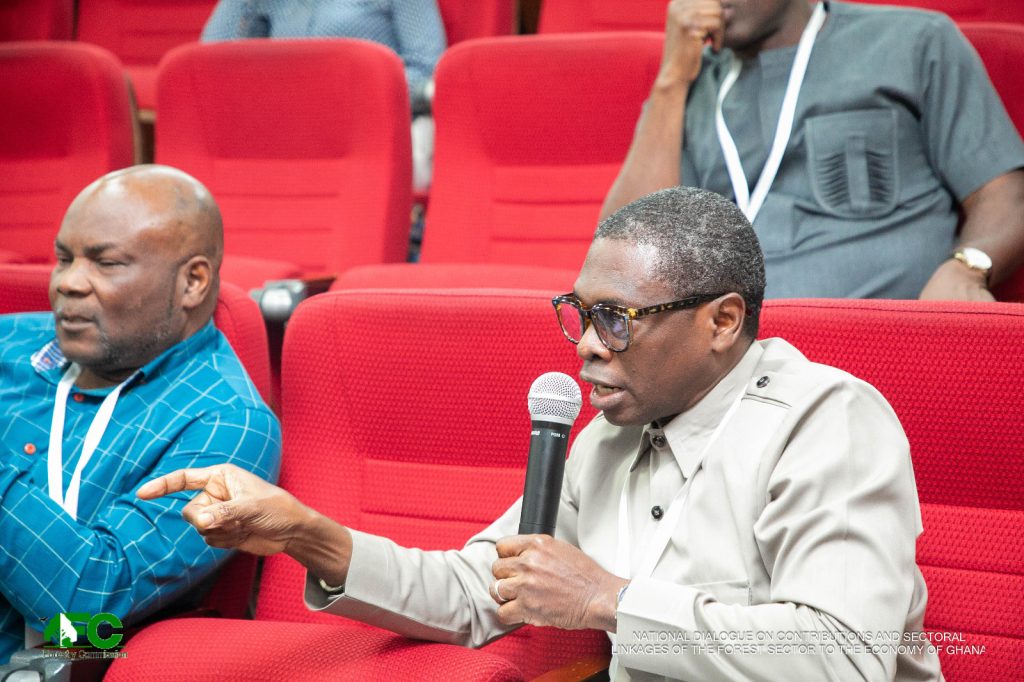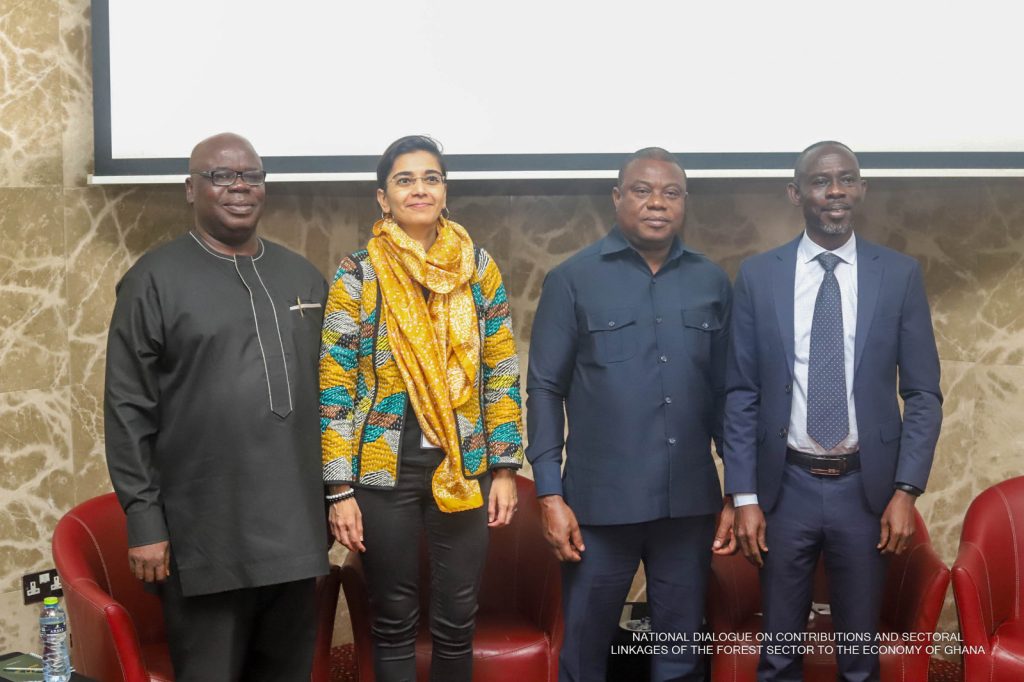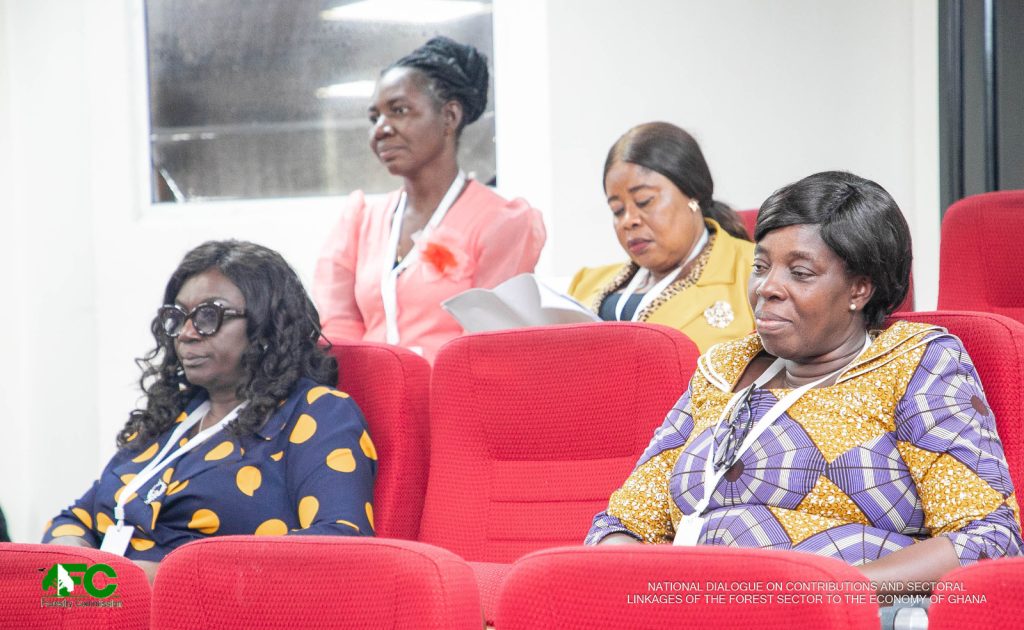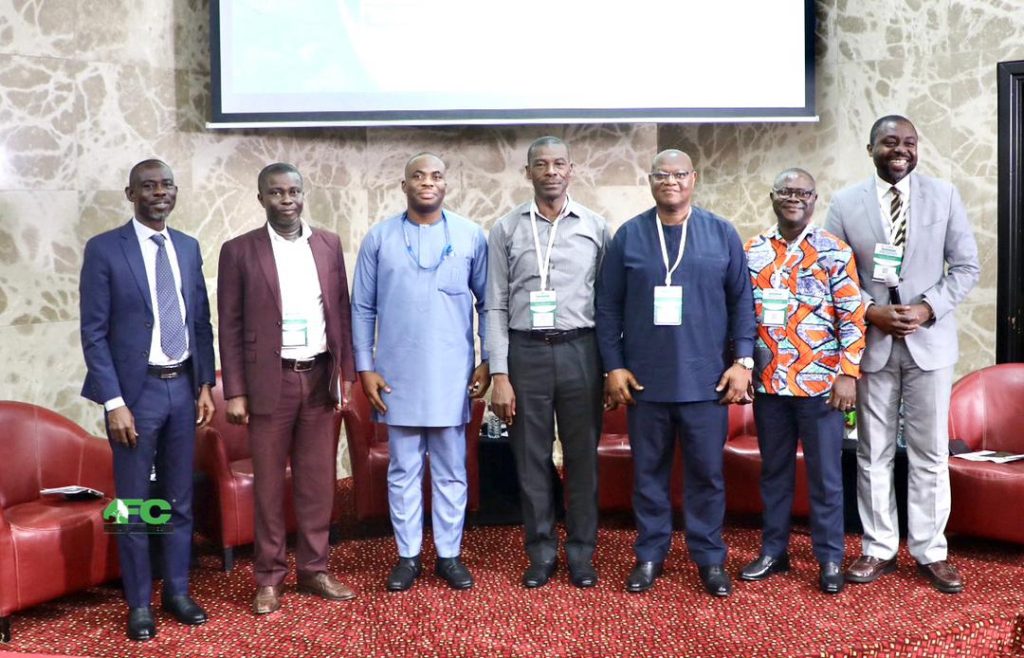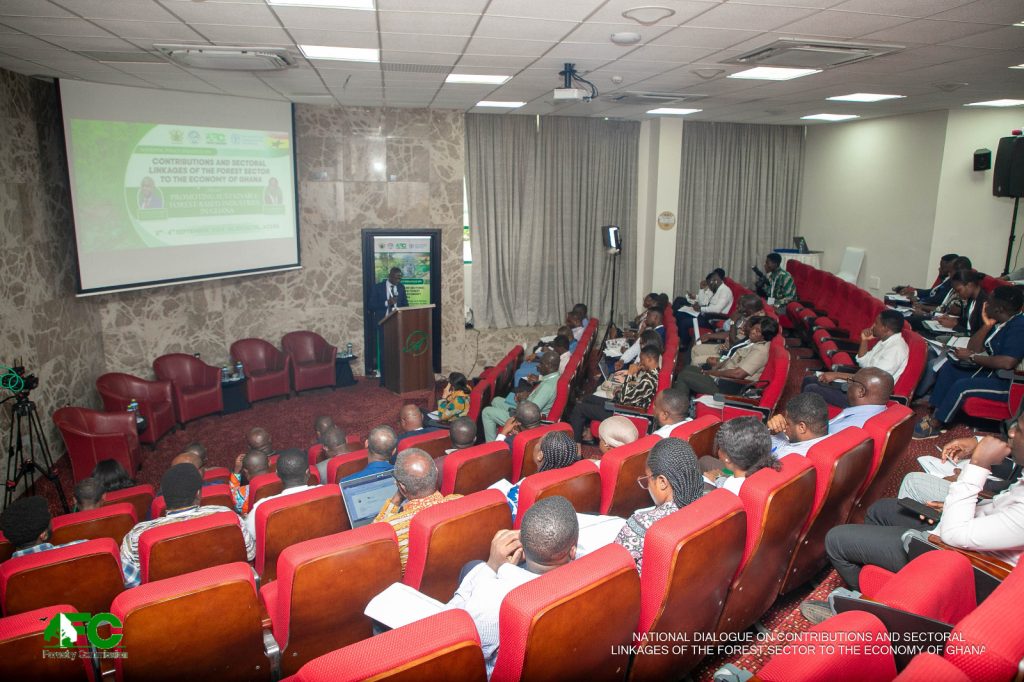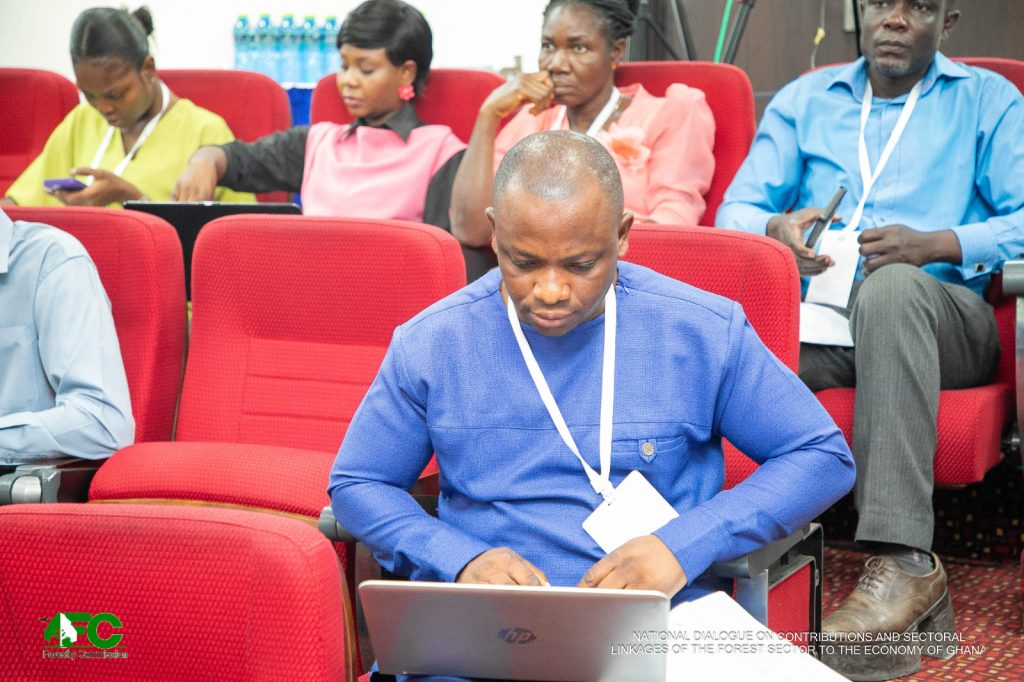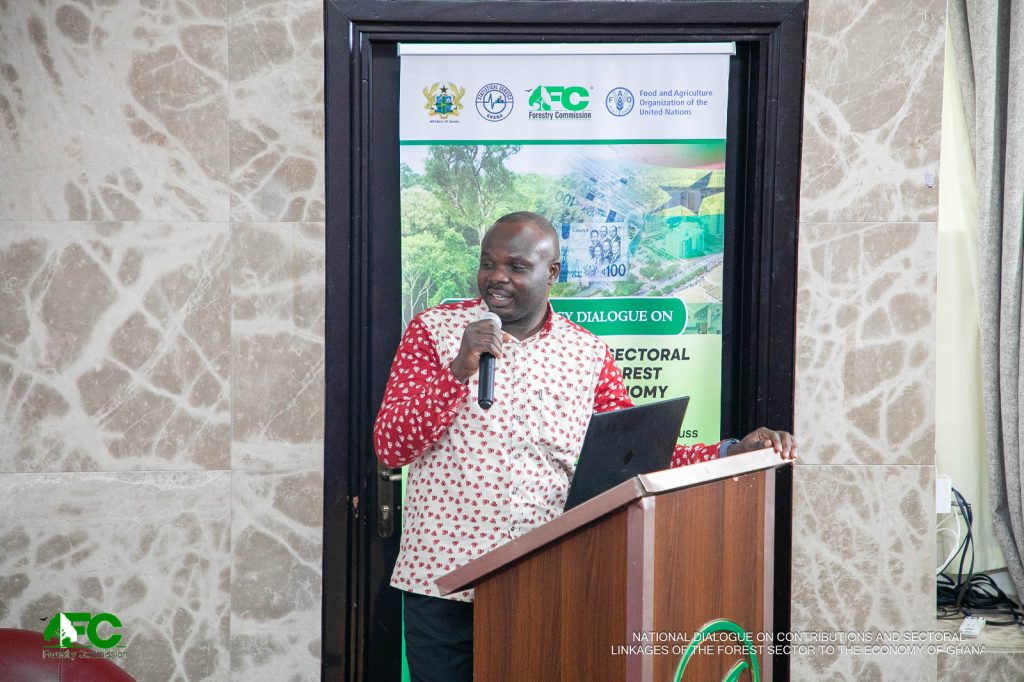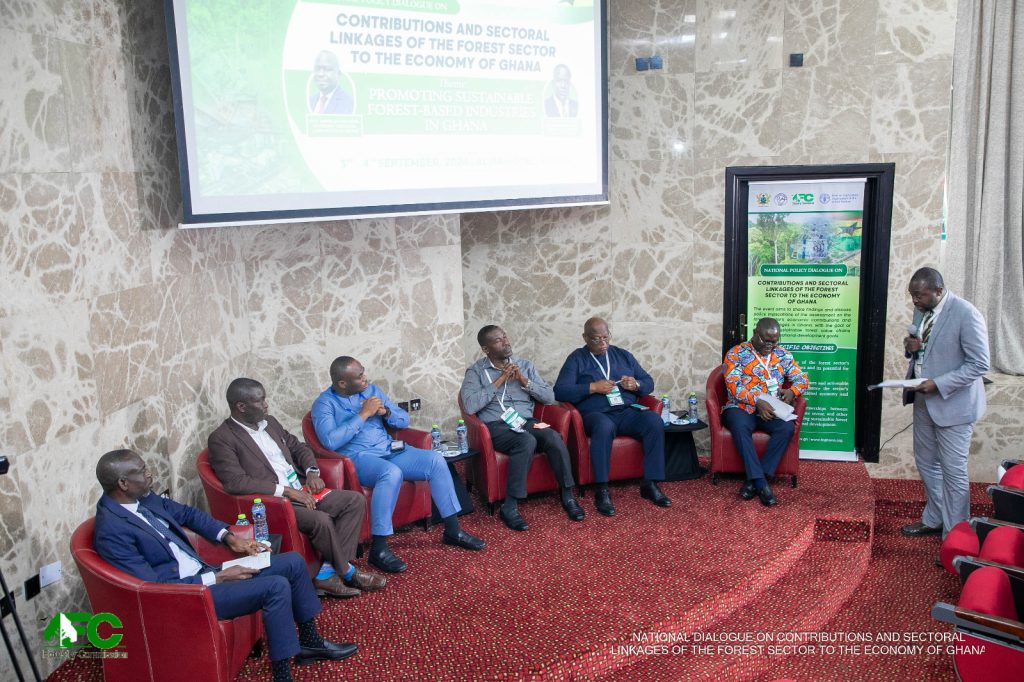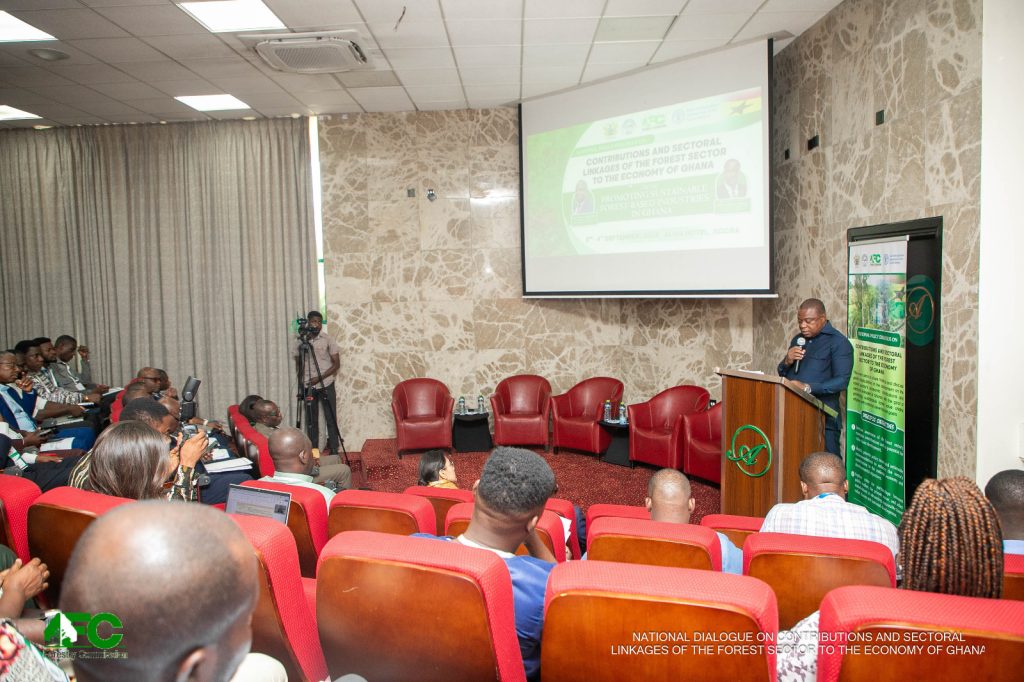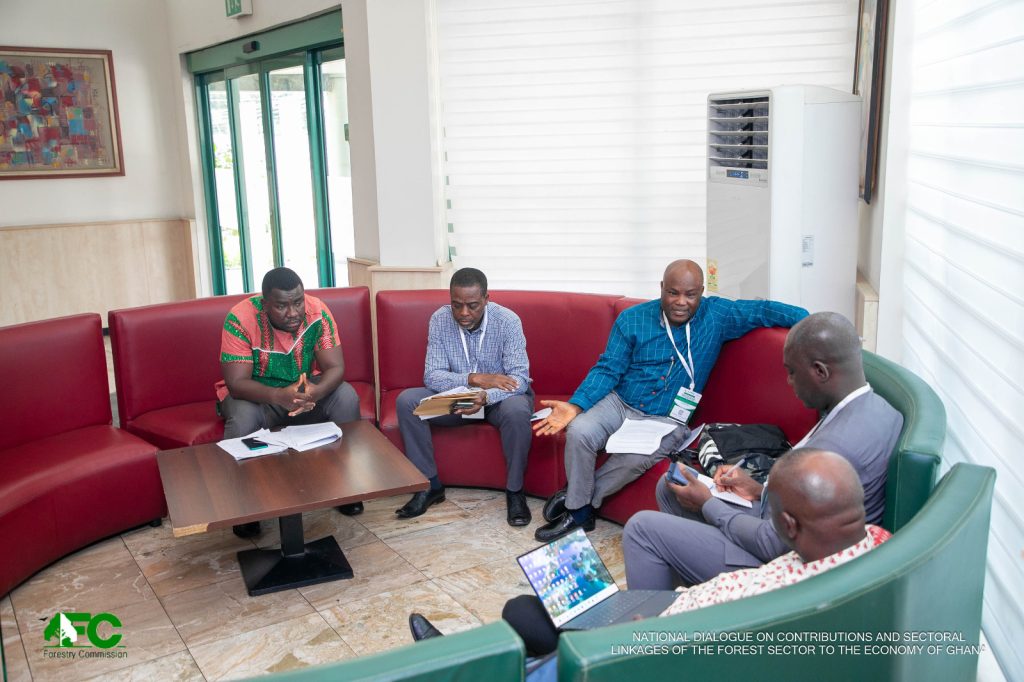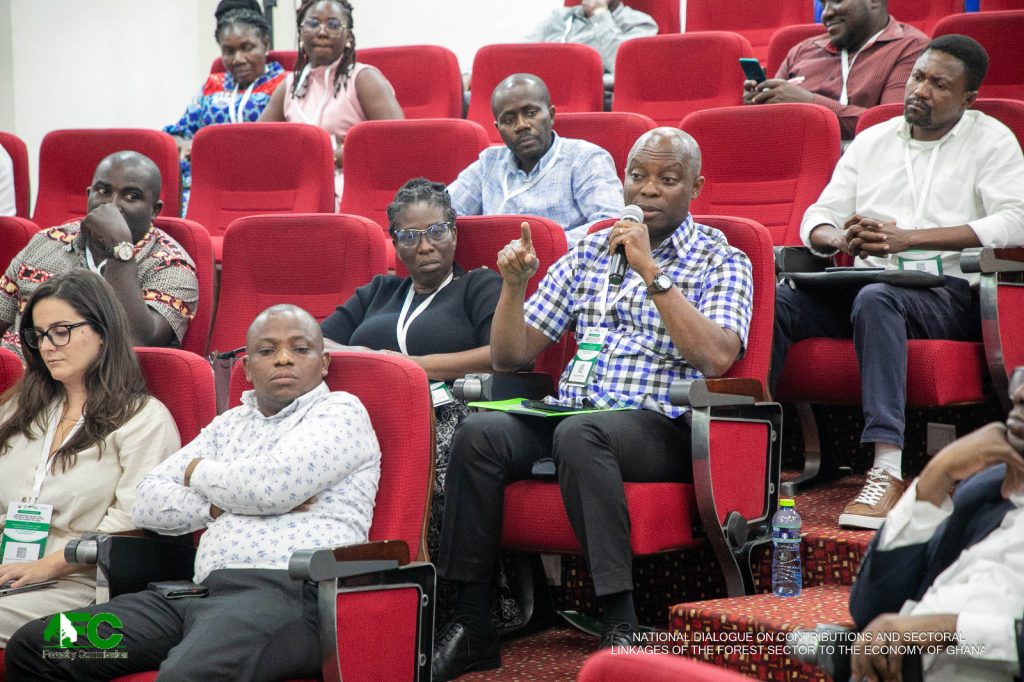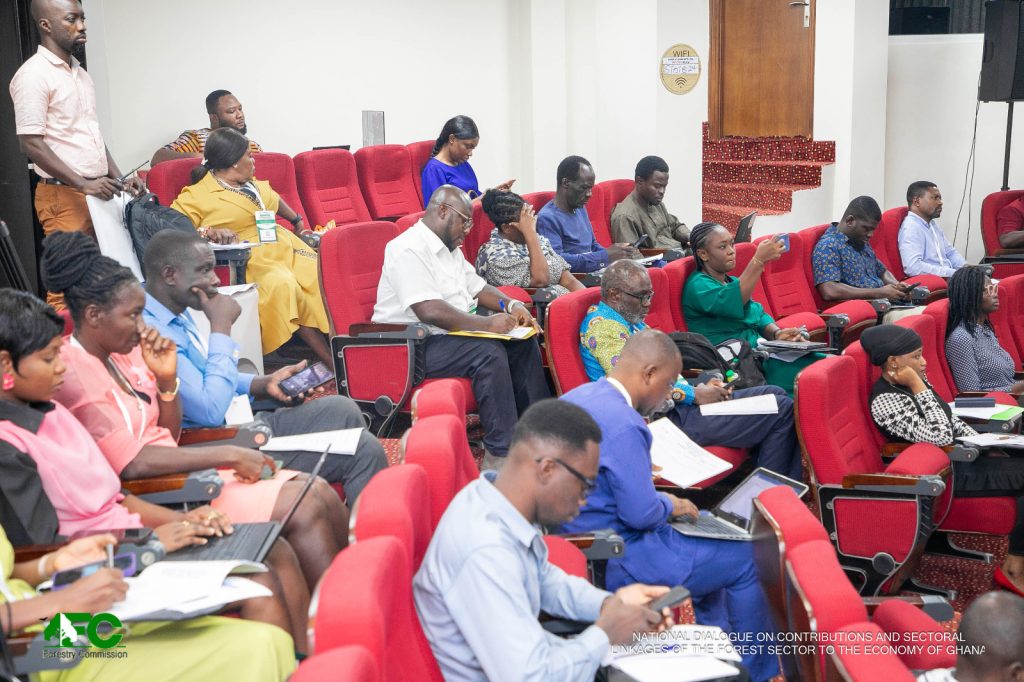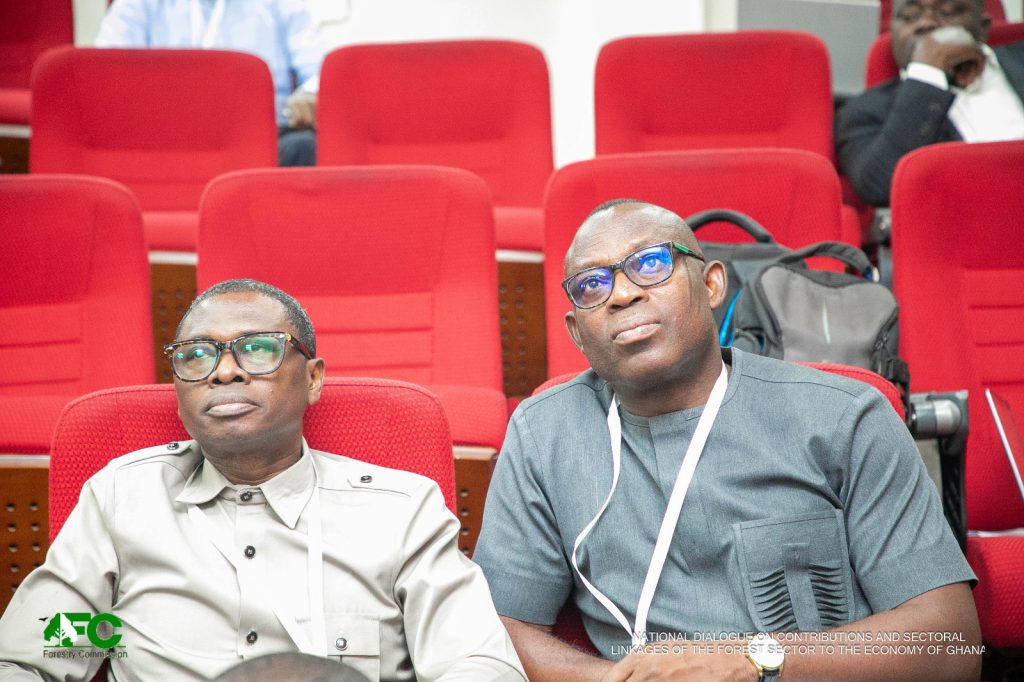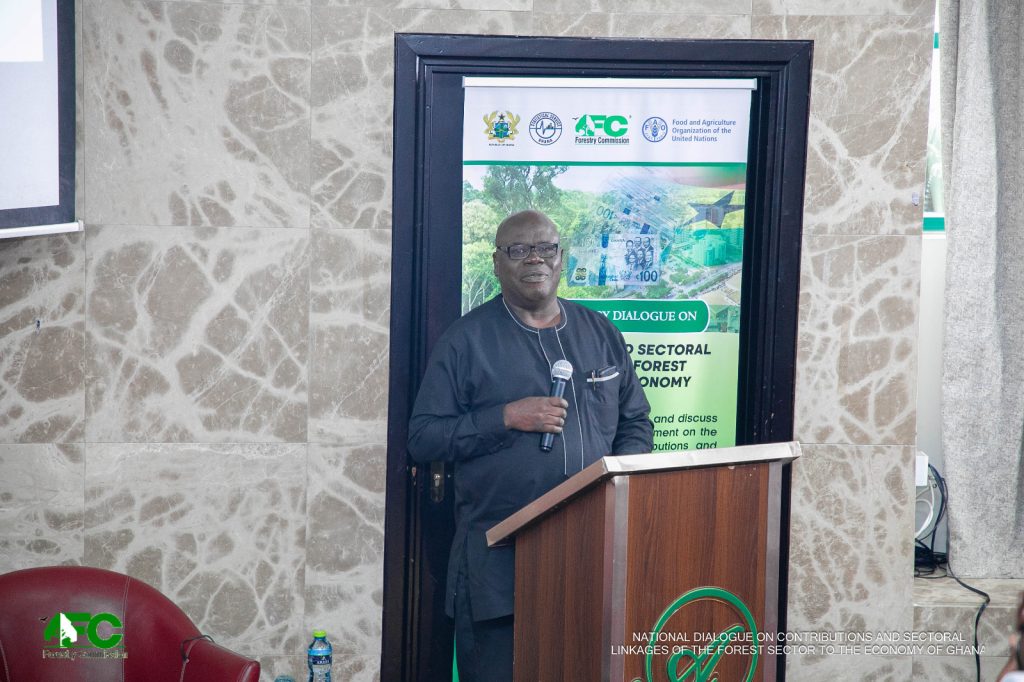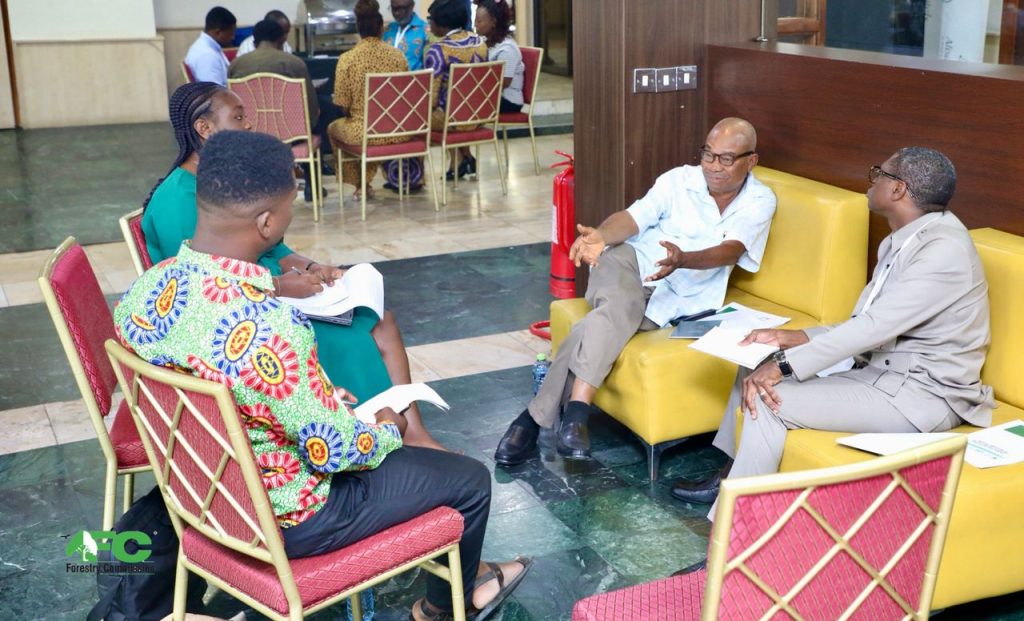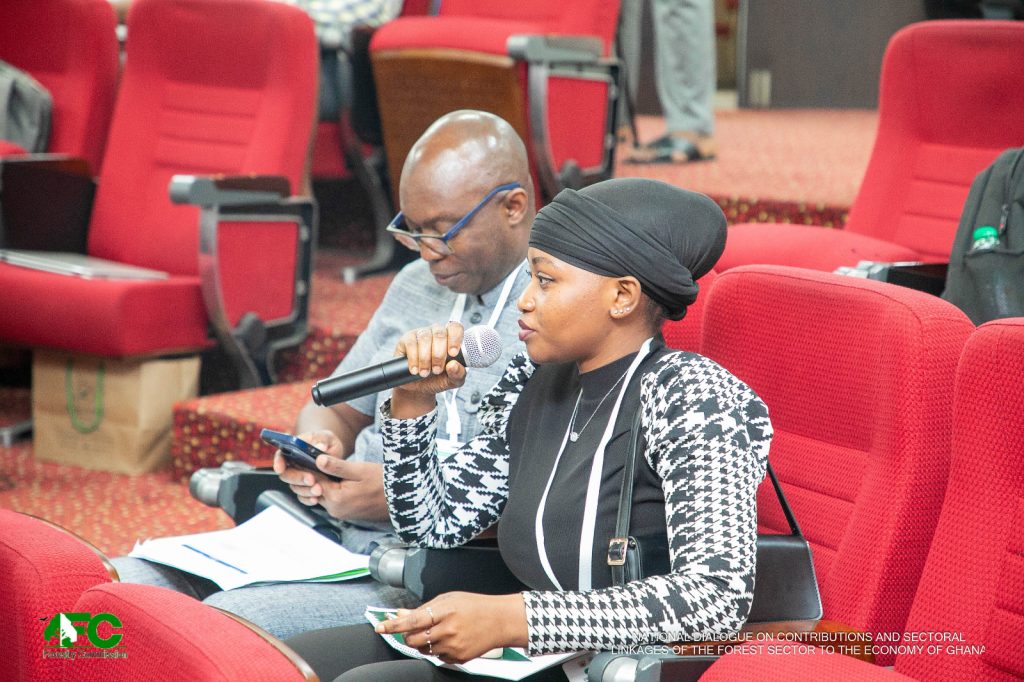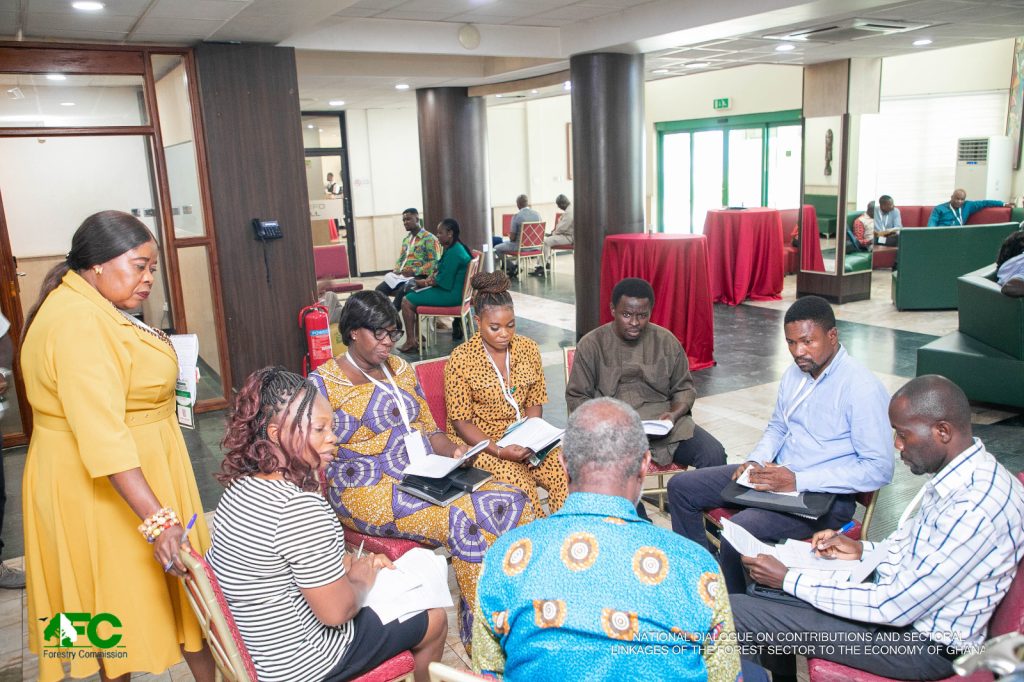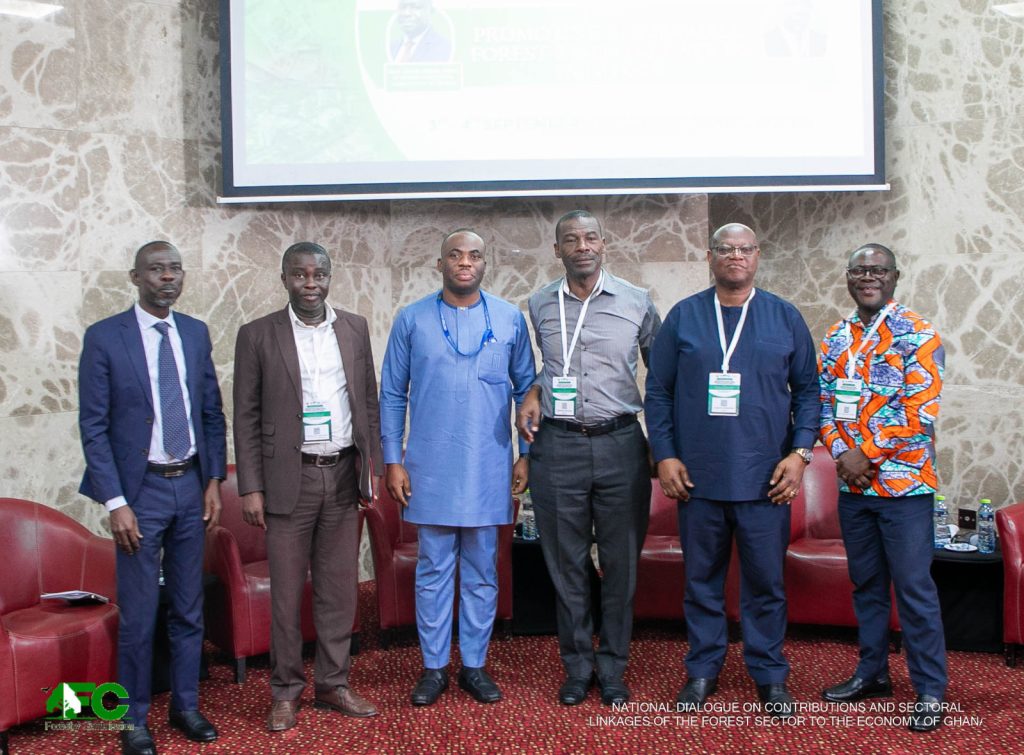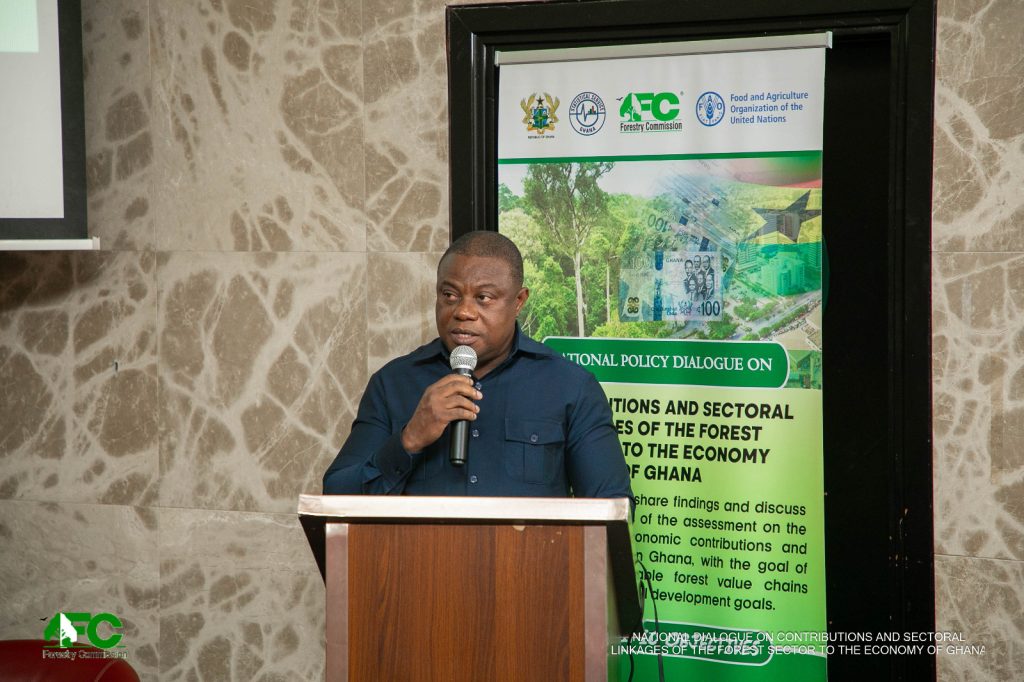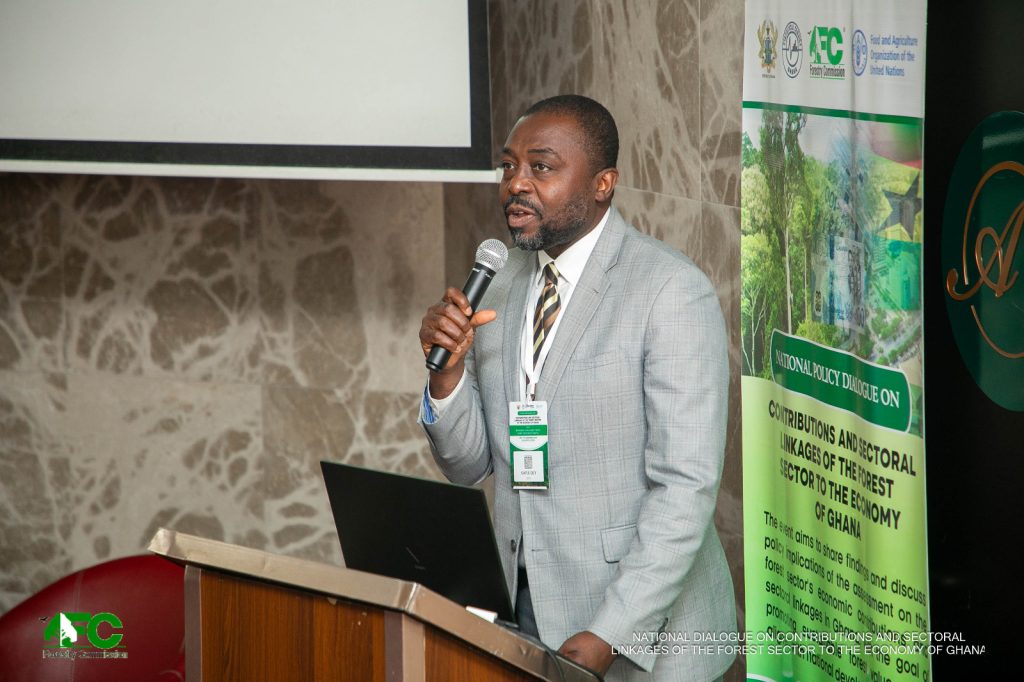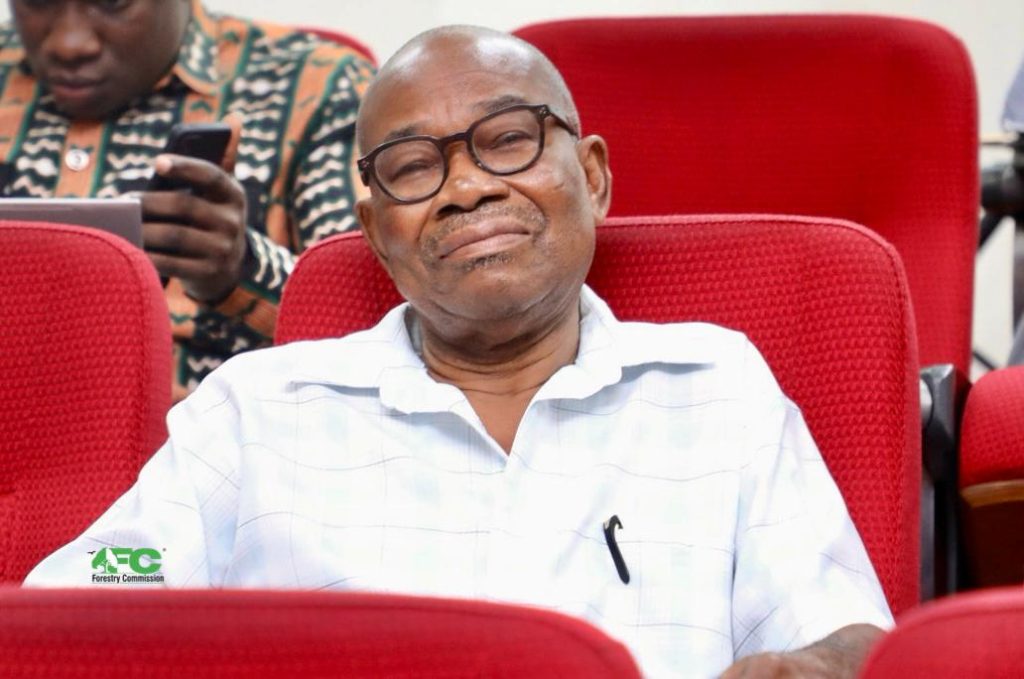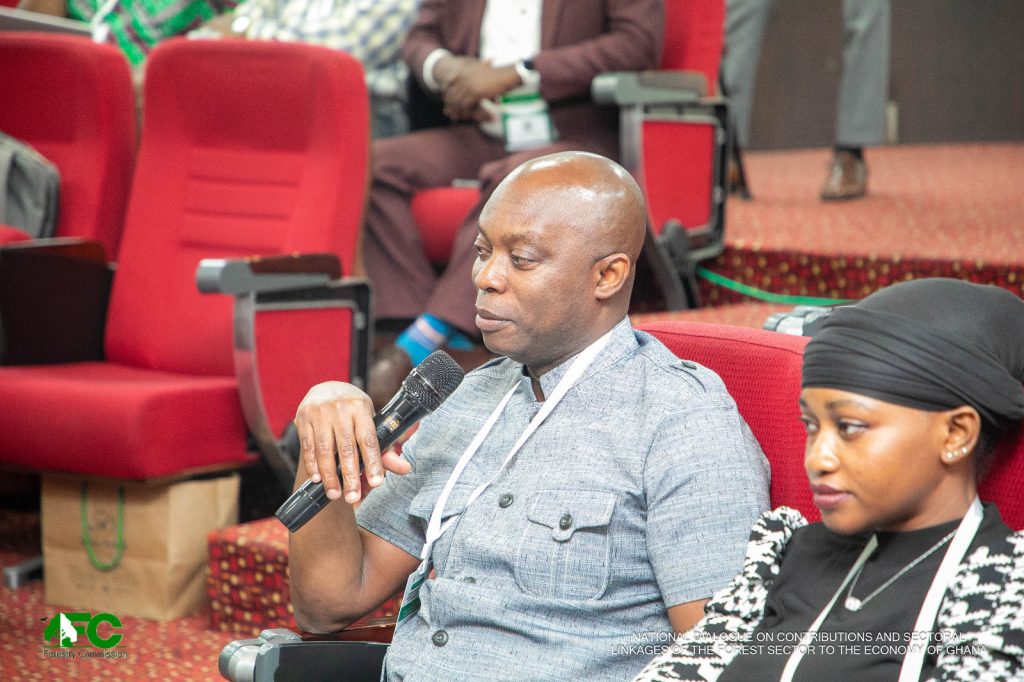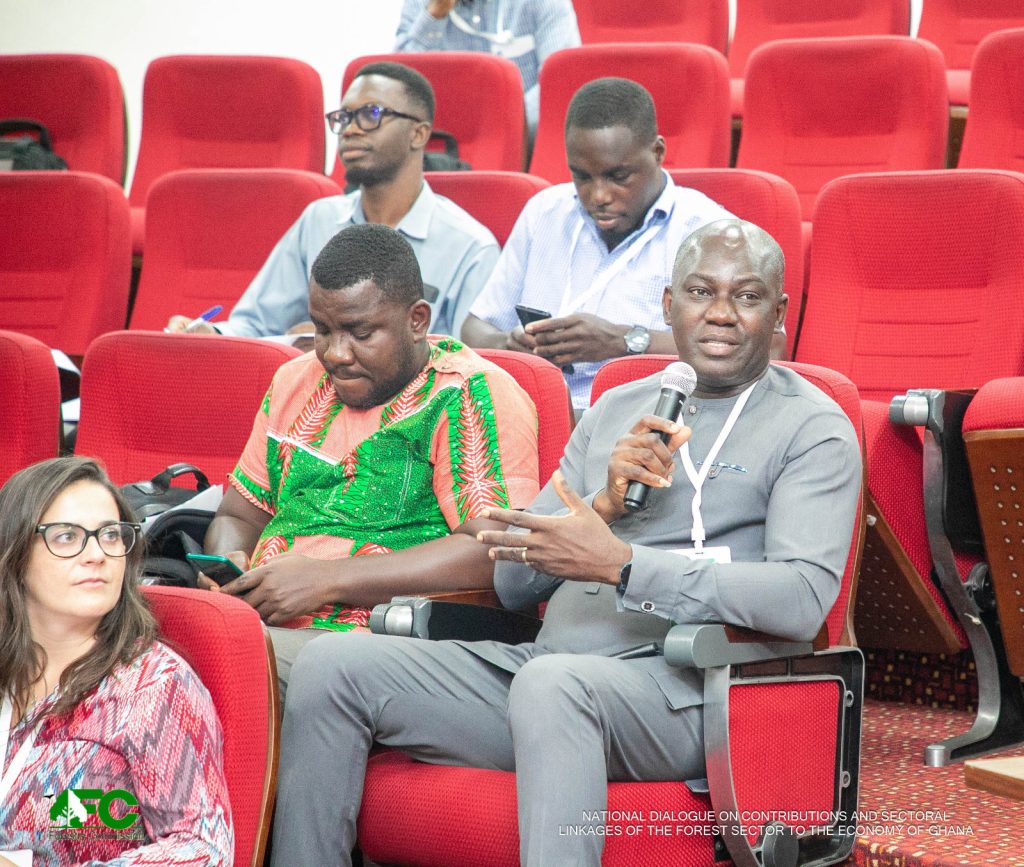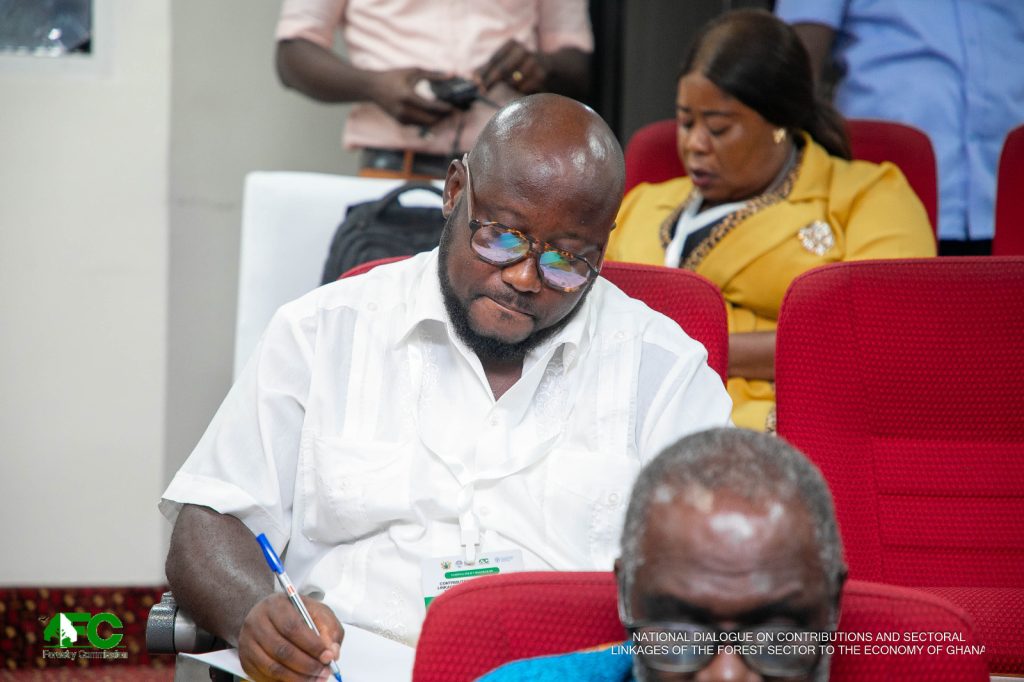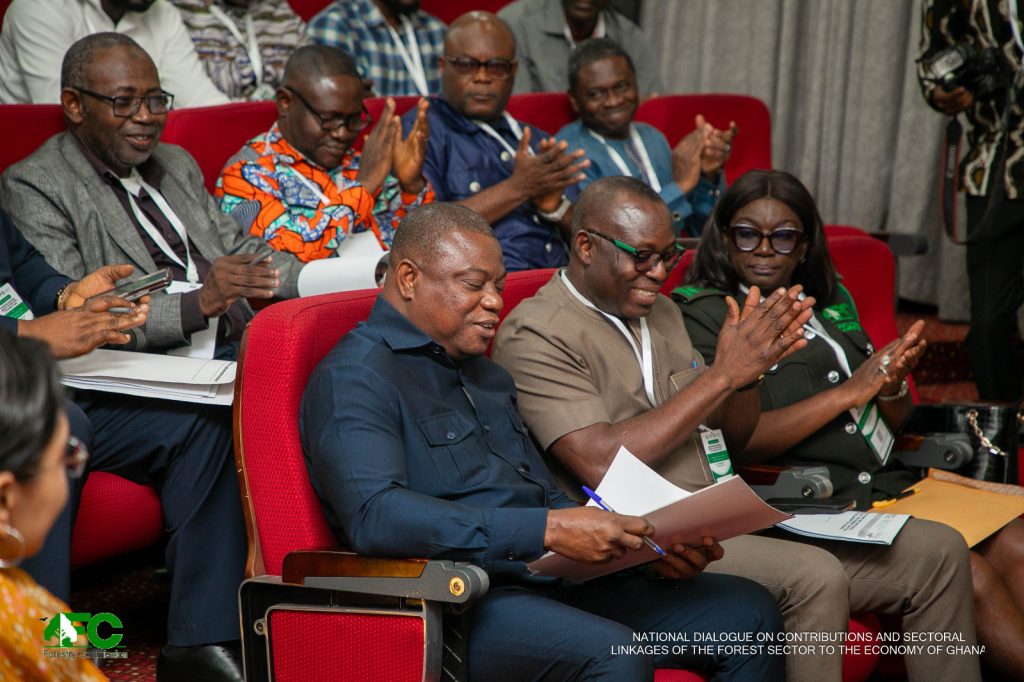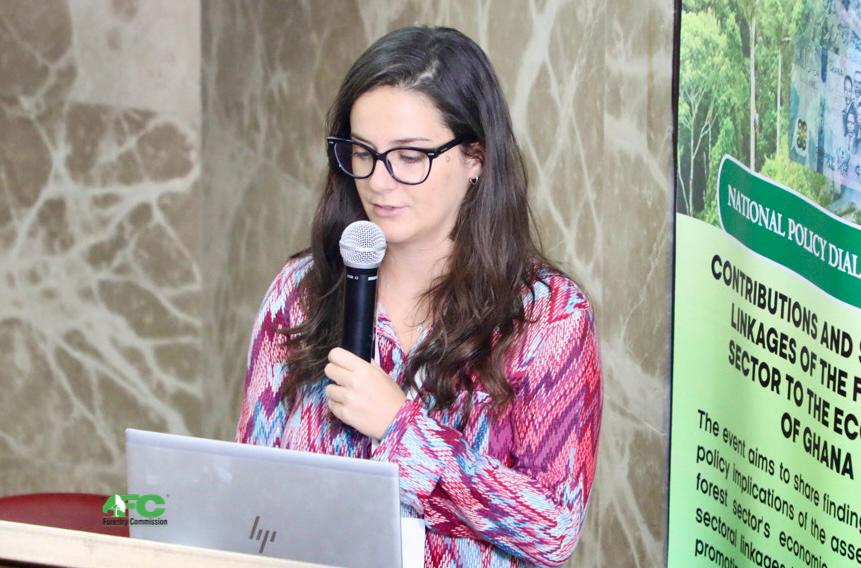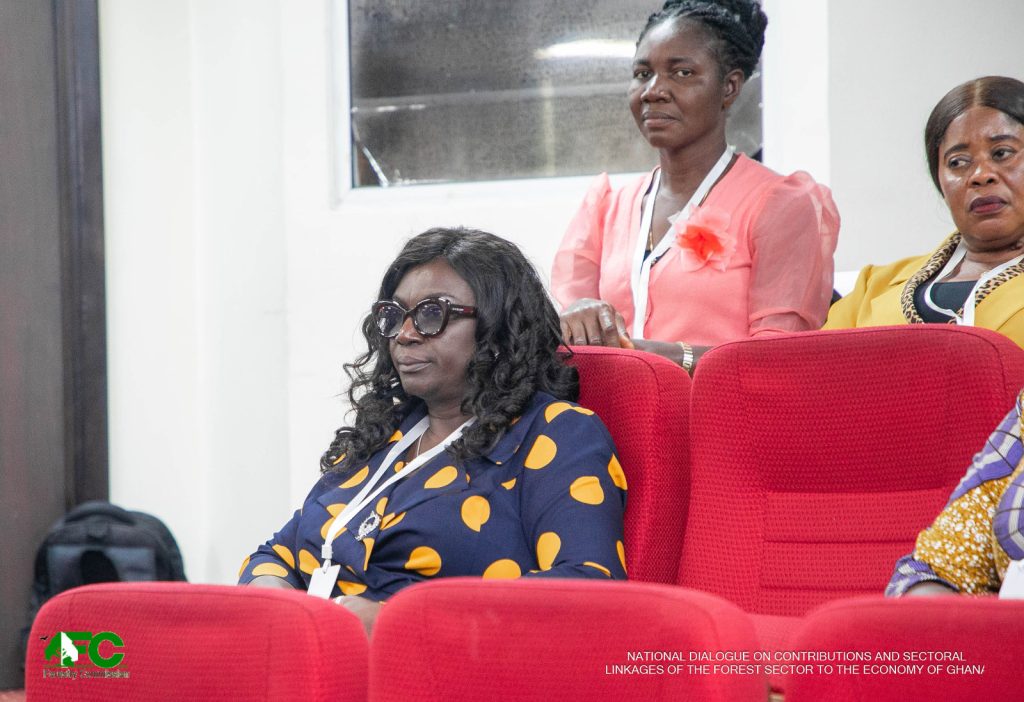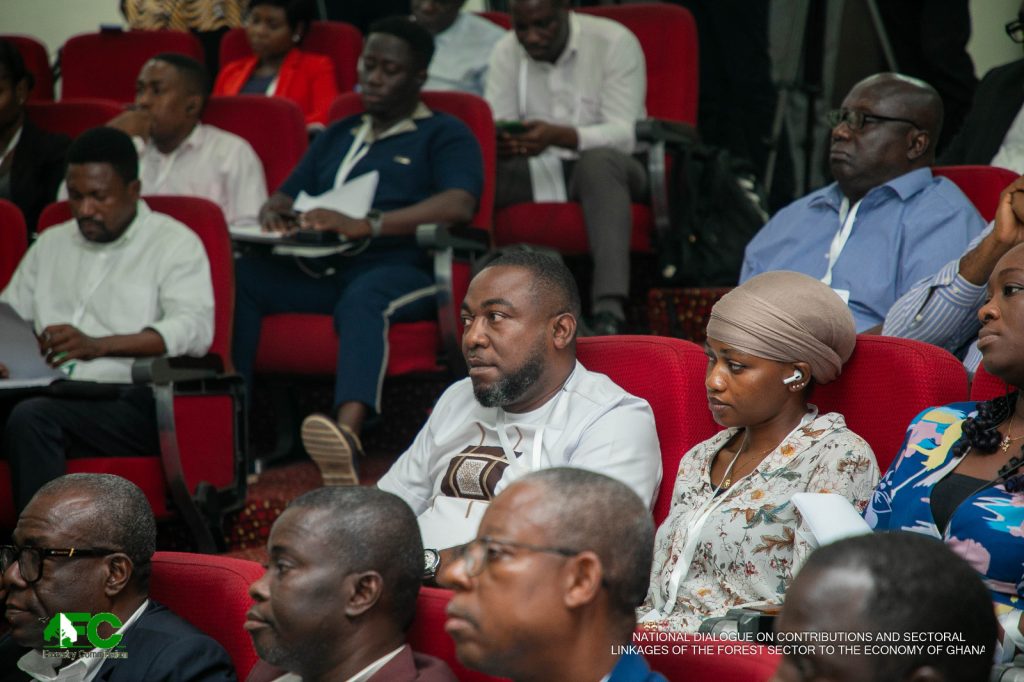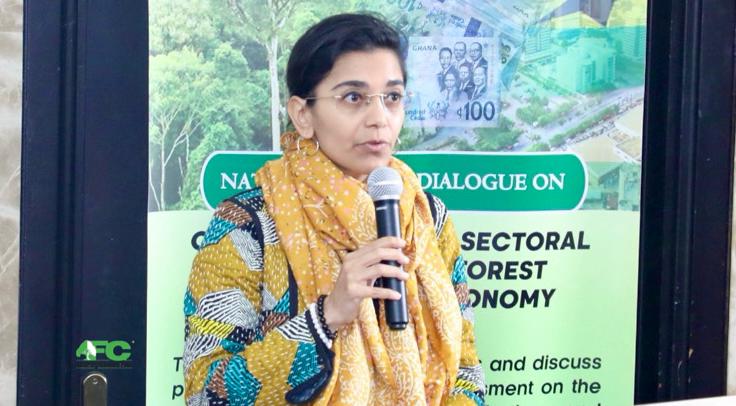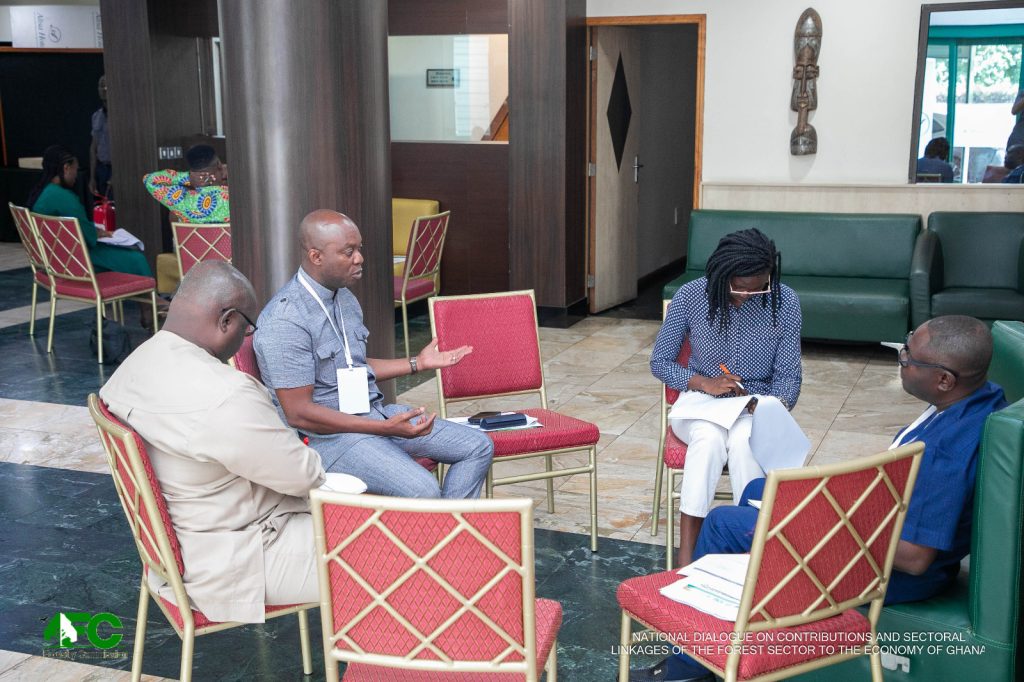“The forest sector plays a vital role, not only in preserving our rich biodiversity but also contributing significantly to the livelihoods of millions of Ghanaians”. This statement was made by the Chief Executive (CE) of the Forestry Commission (FC), Mr. John Allotey, during the National Policy Dialogue on the “Economic Contribution and Sectorial Linkage of the Forest Sector to the National Economy of Ghana”.
The two-day National Policy Dialogue (NPD) dialogue became necessary after a study conducted by the Ghana Statistical Service (GSS) in collaboration with the Forestry Commission (FC); the Food and Agriculture Organisation (FAO), and the Warnell School of Forestry of the University of Georgia in the USA, to assess the contribution of forestry to Ghana’s economic development revealed that the country’s forestry sector, particularly forest and logging in 2014 contributed GH¢10.83 billion to Gross Domestic Product (GDP), representing 2.0 percent. The study also revealed that from 2014 to 2023, the economic contribution of the forest sector to Ghana’s Gross Domestic Product on the average has been 1.5 percent.
The policy dialogue brought together representatives from various organisations such as the Ghana Statistical Service (GSS) Food and Agricultural Organization (FAO), the Warnell School of Forestry at the University of Georgia, the Environmental Protection Agency (EPA), and the National Development Planning Commission (NDPC), to discuss the final report, and assess the economic contribution of the forest sector, which is commonly underestimated due to high informality, weak reporting or lack of disaggregated data and the linkage between the forest sector and other economic sector’s contribution to the national economy, as well as policy measures to drive the growth of the forestry sector.
The Chief Executive, in assessing the influence and contribution of the sector to the sustainable development of forest and environmental stability, highlighted numerous benefits derived from the forest and expressed his optimism that the discussions and recommendations brought forth from the dialogue will shed light on the vital role our forests play as key drivers of economic growth, employment, and national development, and lead to a successful outcome that will drive the advancement of the forest sector.
He expressed his gratitude to the panelists, speakers, and participants for their commitment in advancing the role of the forest sector in Ghana’s development. “Together we can ensure that the forest sector continues to thrive and contribute to the prosperity and well-being of our nation”, he added.
The Minister for Lands and Natural Resources, Hon. Samuel A. Jinapor, in a keynote address read on his behalf by his Chief Director, Prof. Patrick Agbesinyale, said though the impact of the forest sector is profound and far-reaching, the forest sector is often overshadowed by other industries when discussing national economic performance.
According to him, though there are numerous benefits derived from the forest, illegal logging and mining, forest degradation and wildfires still remain a great threat to forest sustainability.
He, however, used the platform to highlight some sustainable forest management practices the sector has implemented to address the challenges, including the Green Ghana Day (GGD) Project, National Afforestation Program, Reducing Emissions from Deforestation and Forest Degradation (REDD+), Cocoa and Forest Initiative (CFI) and Enhancing Forest Law Enforcement.
The keynote speaker, Ms. Thais Linhares Juvenal, Senior Forestry Officer, Forestry Division, FAO, in her address, recommended that the sector improve data collection and analysis to better explore the opportunities created by the economic linkages of forests to other sectors. She also recommended that the sector raises awareness and build capacities to develop a forest-based bio-economy, coherent with restoration strategies and urbanisation needs. She used the platform to urge members to collaborate and develop coherent programmes and approaches, implement laws, policies, and strategies that empower communities, secure the use and access rights, and support them in combating illegal activities in the forestry sector.
There was a high-level panel discussion among the participating organisations (FAO, FC, EPA, NDPC, MLNR, GSS, and Academia), to elevate visibility and awareness of the forest sector’s contribution and sectorial linkages of Ghana’s economy, identify and validate priority policy issues emerging from the economic assessment and commendations to further enhance the sector’s contribution to the national economy.
One key recommendation that came from the panel discussion was for public and private sector institutions to partner in discussions for the development of the forest sector.
Presentations were made by various speakers at the event. Ms.Yanshu Li, from the University of Georgia, gave a presentation on the Final Report And Key Findings On The Contributions And Sectoral Linkages Of The Forest Sector To The Economy Of Ghana. Ms. Nathalia Formenton Cardoso from the Forest Products and Economics Specialist, FAO, gave a presentation on the Potential Policy Implications Emerging From The Report Findings. The Acting Director for the Resource Management and Support Center (RMSC) of the Forestry Commission, Mr. Yakubu Mohammed, also gave a detailed presentation on the Capacity For Natural Capital Accounting (NCA) For Sustainable Development In Ghana, and the roles FC plays under the NCA and its outputs, and Mr. Thomas Gyambrah from the Climate Change Directorate gave a presentation on the Forest And Climate Leaders Partnership (FCIP) And The Restoration, Resilience And Recovery Project.
The meeting climaxed with group discussions, where participants were divided into six groups to discuss topics centered around strengthening linkages with agriculture for increased policy impact; boosting the forest sector’s contribution to household livelihoods; enhancing wood processing and value-adding activities; increasing the use of wood in housing construction for increased impact in climate change goals; addressing informal forestry practices and invisible linkages among value chains, and improving data availability and potential of innovative approaches.
At the end of the discussions, the various groups gave presentations on the outcomes of their deliberations.
